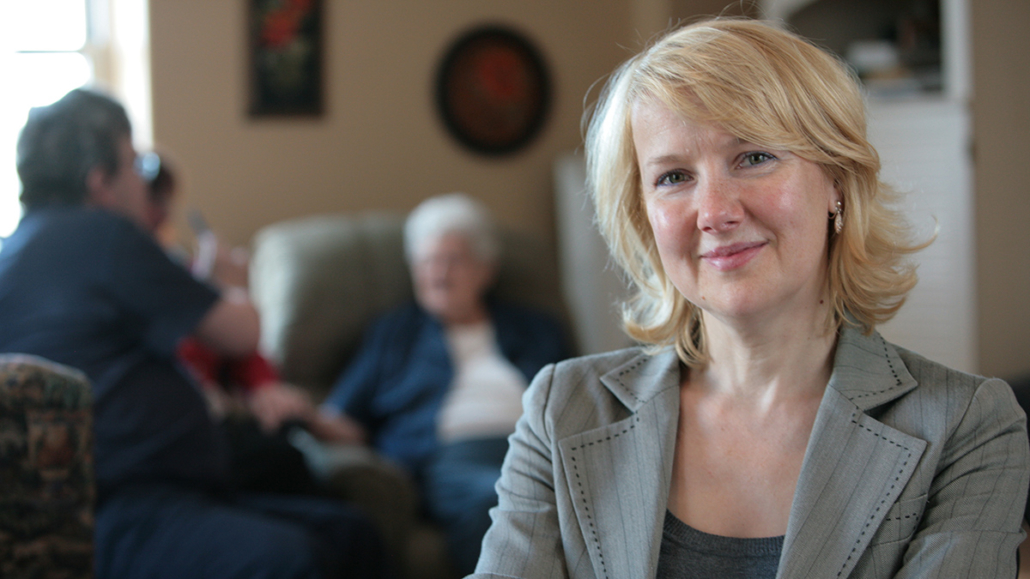ABOUT THE RESEARCH
The research project “Ageing, communication, technologies: experiencing a digital world in later life” (ACT) is seeking applications for a postdoctoral fellowship in the Department of Communication Studies at Concordia University, under the supervision of ACT Director Dr. Kim Sawchuk.
ACT is a multi-methodological and interdisciplinary project funded by the Social Sciences and Humanities Research Council, and brings together researchers, local community partners and international institutional partners to investigate the transformation of the experiences of ageing with the proliferation of new forms of mediated communications in networked societies.
ACT is offering a postdoctoral fellowship in the area of “Ageing, Communication, Technologies” and invites applications from candidates whose research examines intersects with ACT’s mandate, and with one of its three research axes.
Agency in Ageing: Collaborative Creativity and the Digital Arts in Later Life encompasses a program of research that involves individuals and communities in the development of participatory action research projects that have both scholarly and creative outcomes. This approaches takes seriously people’s everyday interactions with technologies, and uses these experiences to explore what it means to be a critical citizen in the information age in a process of collaborative knowledge creation.
Critical Mediations: Everyday Life and Cultures of Ageing examines the everyday life practices and the variegated mediated experiences of adults in later life. Looking at how older adults engage with music, photography, film, television, or gaming, to name but a few of the key areas that are increasingly subject to transformations in their modes of production and circulation, this research employs methods and concepts drawn from cultural studies and the humanities.
Telecommunication Technologies: Ageing in Networked Societies investigates ageing in the context of networked societies. Research in this area primarily is conducted through methodologies associated with the social sciences, bridging internet and telecommunications research with ageing studies, including – but not limited to – cellphones that allow for talking, texting, and video calling, laptops for Skyping with grandchildren, and tablets for reading books, playing (intergenerational) digital games, or accessing the internet.
FINANCIAL COMMITMENT
The Postdoctoral Fellowship in Ageing, Communication and Technologies entails a yearly salary of $45,000 CAD and can begin as early as August 2018. Only applications for one-year projects will be considered, but there may be an opportunity for re-application for a second year. The ACT Postdoctoral Fellowship will be housed at Concordia University in Montreal, but can be undertaken in collaboration with a partner institution of ACT (see our full list of partners).
A central goal of ACT is to train a new generation of Canadian scholars in the study of ageing from the perspective of the social sciences, the arts and/or the humanities. As such, in addition to conducting and completing their own research project, the chosen candidate will be expected to participate actively in the intellectual development of ACT, to work on a regular basis from the ACT offices located in downtown Montreal, and to perform some of the following tasks that are intended to complement their postdoctoral training: assist in the organization and implementation of academic and community events, (including conferences and workshops), conduct public and university lectures, contribute to the development of collaborative projects within ACT, assist in the preparation of grant applications.
ELIGIBILITY
The successful candidates will have a PhD in hand before beginning the position. Preference will be given to Canadian citizens and permanent residents.
HOW TO APPLY
Application Deadline: June 1, 2018 (for an August to October 2018 entry)
In a single email addressed to application@actproject.ca, please provide the following three components as individual attachments.
1) A letter of intent (maximum 3 pages) that articulates the research project to be
undertaken, how the research fits within the mandate of ACT, the candidate’s suitability
and expertise, the applicant’s timeline and collaborative interests within the ACT
network.
2) A CV.
3) A list of three references with complete contact information, who could be called upon to write letters of recommendation.


 ACT is pleased to announce the release of the
ACT is pleased to announce the release of the 
